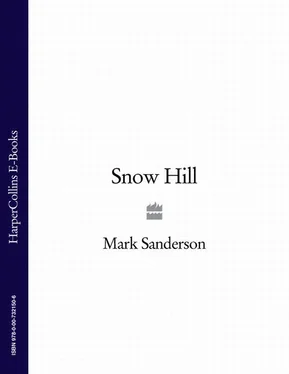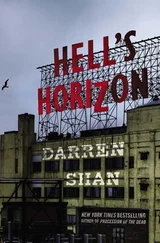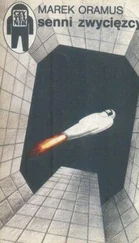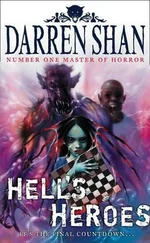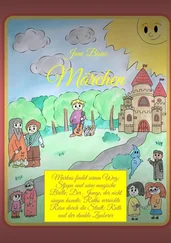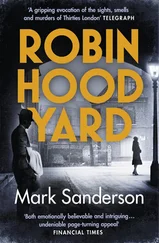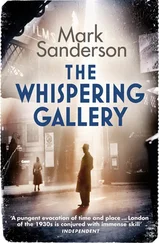HarperCollins Publishers
In memory of Drew Morgan (1964-1994)
Now from all parts the swelling kennels flow,
And bear their trophies with them as they go:
Filths of all hues and odour, seem to tell
What street they sail’d from, by their sight and smell.
They, as each torrent drives, with rapid force,
From Smithfield to St ’Pulchre’s shape their course;
And in huge confluence join’d at Snow Hill ridge,
Fall from the conduit prone to Holborn Bridge,
Sweepings from butchers’ stalls, dung, guts and blood,
Drown’d puppies, stinking sprats, all drenched in mud,
Dead cats and turnip-tops come tumbling down the flood…
From A Description of a City Shower
Jonathan Swift, October 1710
Cover
Title Page Snow Hill Mark Sanderson HarperCollins Publishers
Dedication In memory of Drew Morgan (1964-1994)
Epigraph Now from all parts the swelling kennels flow, And bear their trophies with them as they go: Filths of all hues and odour, seem to tell What street they sail’d from, by their sight and smell. They, as each torrent drives, with rapid force, From Smithfield to St ’Pulchre’s shape their course; And in huge confluence join’d at Snow Hill ridge, Fall from the conduit prone to Holborn Bridge, Sweepings from butchers’ stalls, dung, guts and blood, Drown’d puppies, stinking sprats, all drenched in mud, Dead cats and turnip-tops come tumbling down the flood… From A Description of a City Shower Jonathan Swift, October 1710
Foreword FOREWORD I went to my funeral this morning. I expected more people to be there—if only, like Simkins, to make sure the coffin lid was nailed down properly. The turnout was so disappointing I felt like joining the mourners as they huddled round the gaping grave—but, of course, I couldn’t. It was short notice, and it is the week before Christmas, so I suppose it’s a miracle that anyone, apart from Matt and Lizzie, bothered to traipse from Fleet Street to Finchley. Mr Stone told me that more came to the service in St Bride’s. Then my colleagues only had to walk about a hundred yards to the church. At least they made the effort. My killer didn’t. I’ve been through a lot in the past few days. I nearly froze to death. I nearly burned to death. Daisy’s walked out. I’ve been blackmailed and nearly framed for murder. And I know there’s worse to come. The bastard thinks he’s got away with it. He won’t stop now. I can’t wait to see his face. It began to snow as Lizzie threw her handful of earth into the grave. Not the usual thin, grey flakes that look like dandruff: thick, white, fluffy ones, the sort you see in children’s picture books. The gardens of stone soon disappeared under a shroud: God was organising his own cover-up. A real snow-job. It is weird watching yourself being buried. I was a wraith at my own wake—which is somehow rather apt. This whole affair is about ghosts, bringing the dead back to life, giving a shape to the past. The world is not the sort of place I thought it was. I’m still not sure what went on in the small hours of 5th December, but I do know it should never have happened. I know it was evil. I will uncover the truth even if I have to kill to get it. A dead man can’t be tried for murder. From the diary of John Steadman Friday, 18th December, 1936
Part One: Smithfield PART ONE Smithfield
Chapter One
Chapter Two
Chapter Three
Chapter Four
Chapter Five
Chapter Six
Chapter Seven
Chapter Eight
Chapter Nine
Chapter Ten
Part Two: Honey Lane
Chapter Eleven
Chapter Twelve
Chapter Thirteen
Chapter Fourteen
Chapter Fifteen
Chapter Sixteen
Chapter Seventeen
Chapter Eighteen
Chapter Nineteen
Chapter Twenty
Part Three: Snow Hill
Chapter Twenty-One
Chapter Twenty-Two
Chapter Twenty-Three
Chapter Twenty-Four
Chapter Twenty-Five
Chapter Twenty-Six
Chapter Twenty-Seven
Chapter Twenty-Eight
Chapter Twenty-Nine
Chapter Thirty
Afterword
Bibliography
Acknowledgments
About The Author
Other Books By
Copyright
About the Publisher
I went to my funeral this morning. I expected more people to be there—if only, like Simkins, to make sure the coffin lid was nailed down properly. The turnout was so disappointing I felt like joining the mourners as they huddled round the gaping grave—but, of course, I couldn’t. It was short notice, and it is the week before Christmas, so I suppose it’s a miracle that anyone, apart from Matt and Lizzie, bothered to traipse from Fleet Street to Finchley. Mr Stone told me that more came to the service in St Bride’s. Then my colleagues only had to walk about a hundred yards to the church. At least they made the effort. My killer didn’t.
I’ve been through a lot in the past few days. I nearly froze to death. I nearly burned to death. Daisy’s walked out. I’ve been blackmailed and nearly framed for murder. And I know there’s worse to come. The bastard thinks he’s got away with it. He won’t stop now. I can’t wait to see his face.
It began to snow as Lizzie threw her handful of earth into the grave. Not the usual thin, grey flakes that look like dandruff: thick, white, fluffy ones, the sort you see in children’s picture books. The gardens of stone soon disappeared under a shroud: God was organising his own cover-up. A real snow-job.
It is weird watching yourself being buried. I was a wraith at my own wake—which is somehow rather apt. This whole affair is about ghosts, bringing the dead back to life, giving a shape to the past. The world is not the sort of place I thought it was.
I’m still not sure what went on in the small hours of 5th December, but I do know it should never have happened. I know it was evil.
I will uncover the truth even if I have to kill to get it. A dead man can’t be tried for murder.
From the diary of John Steadman
Friday, 18th December, 1936
PART ONE Smithfield
Monday, 7th December 1936, 12.35 p.m.
About bloody time. Johnny Steadman stood up and yawned. No matter how much he kicked and cursed, Quicky Quirk, a lantern-jawed youth from Seven Sisters, was off to Pentonville for a five-year stretch. Judge Henshall, hungry for his club’s steak-and-kidney pie and claret, had decided to overlook the house-breaker’s deplorable lack of respect in favour of a quick exit. Johnny was starving too. He would grab a sandwich on the way back to the office.
As he emerged from Court Number Three and slipped into the stream of gowned functionaries, witnesses and spectators, a large hand gripped his shoulder. It belonged to a policeman.
“Ah, Inspector Rotherforth. Congratulations. Another thief off your patch.”
“Unfortunately there are plenty more where that blighter came from. Poverty breeds prisoners.” The cop smiled but did not relinquish his grip. He was known for always getting his man. At six foot two he towered over Johnny, but his height was not exceptional; some members of the City of London Police were seven feet tall. “I trust you’ll give me a mention in dispatches.”
“But of course.” Johnny relaxed as the long arm of the law finally released him.
Rotherforth was one of the first people he had interviewed for the Daily News . The senior officer had rescued a young girl from drowning. One moment she’d been playing happily on the beach beside Tower Bridge, the next she was being swept away by the current and dragged under the surface of the crowded waterway. With no thought for his own safety, Rotherforth, alerted by the screaming mother, had dived off the bridge into the Thames. To the applause of a crowd of red-faced Cockneys—who would be feeling cold, sick and dizzy by the end of the day, despite the knotted handkerchiefs on their heads—the policeman had dragged the unconscious child from the filthy water and administered mouth-to-mouth, undoubtedly saving her life.
Читать дальше
